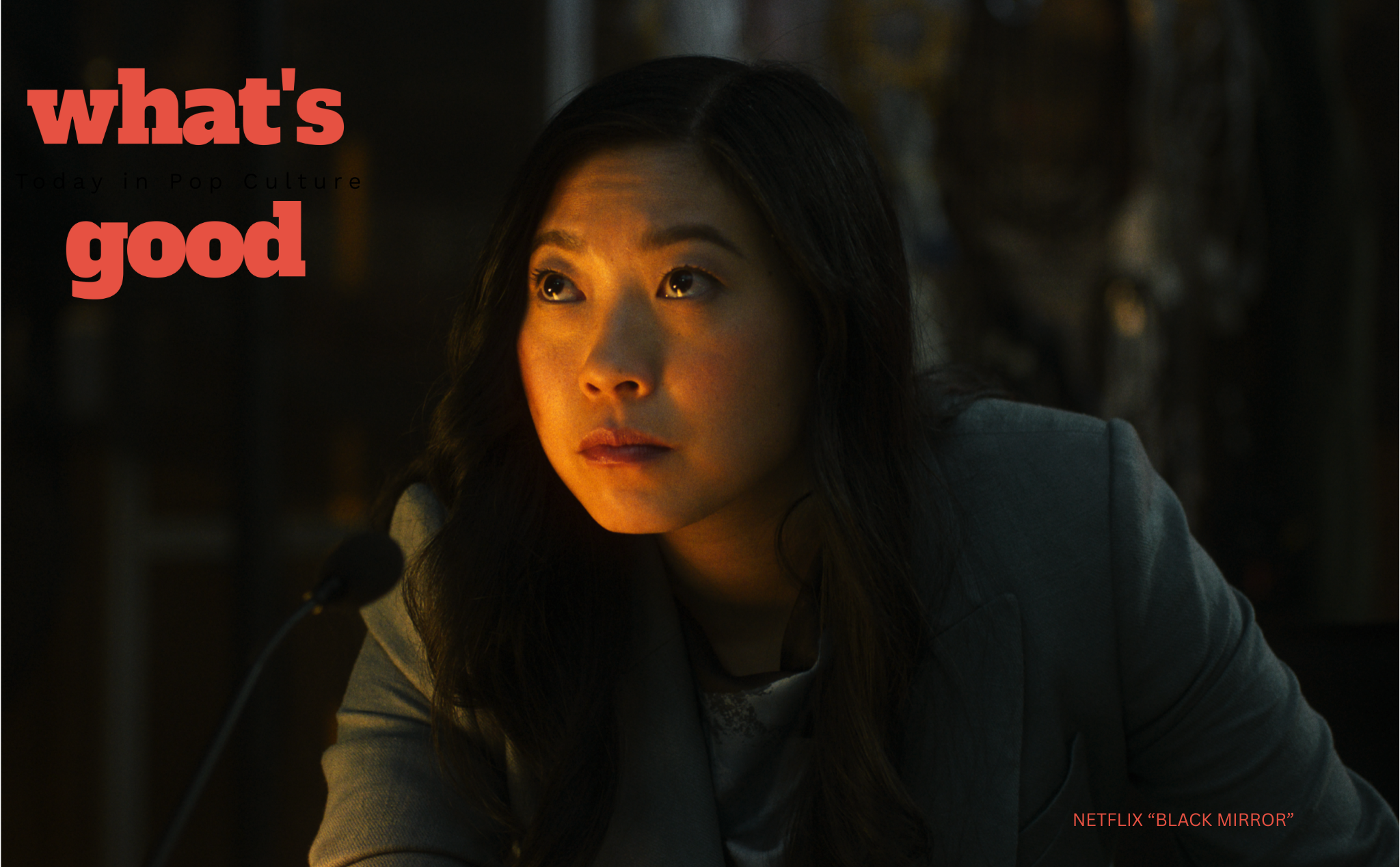Awkwafina has done it all: viral rap videos, Golden Globe-winning drama, and now a starring role in the latest season of Black Mirror. But despite her ever-growing list of accomplishments, the actress says that stepping into more dramatic territory still feels like unfamiliar ground.
“With more dramatic roles, I still feel a little bit out of place sometimes,” she admits.
It’s a surprising confession from someone who stunned audiences with her raw, emotional performance in The Farewell, a film that earned her critical acclaim and made history. Now, in the Hotel Reverie episode of Black Mirror, she returns to the dramatic stage, but this time, the stakes are wrapped in sci-fi unease and the haunting implications of technology gone too far.
“You want to occupy all the spaces that also challenge you,” she says. “The Farewell was like a very different kind of thing for me. And I like being able to feel good in comedy.”
She tries to live in the tension of honesty, fear, discomfort, and growth. In Black Mirror, where characters often find themselves spiraling in unfamiliar digital landscapes, Awkwafina taps into her own sense of unease to bring emotional authenticity to the screen.
“I think that if the story calls for you to really resonate with it, you resonate with it. This was one of them, for sure,” she says of her Black Mirror episode.
Despite her success, Awkwafina is quick to push back on the hype. Her perspective is shaped by years of navigating an industry that’s both unpredictable and sometimes dehumanizing.
“So many life lessons, like the transient nature of everything, the transient nature of fear. Of anxiety over the unknown,” she says. “If you start believing in the highs and the lows… you can get a little off-track. You have to stay grounded, because if not, something’s gonna ground you or pull you down.”
That groundedness extends to the people she surrounds herself with, especially the Asian American women who’ve come before and stood beside her. “I feel like a true community with other Asian American women and artists,” she shares. “It’s really important, obviously, that we support each other.”
Whether she’s making audiences laugh or quietly unraveling the human condition in a near-future nightmare, Awkwafina continues to do what she does best: keep it real, even when it’s uncomfortable.
“I don’t believe in the transient highs or the transient lows,” she says. “I think I just try to look at everything with perspective.”
In a world, and a show, obsessed with control, image, and digital perfection, that kind of vulnerability might be the most radical performance of all.
Photo: Netflix “Black Mirror” Season 7




